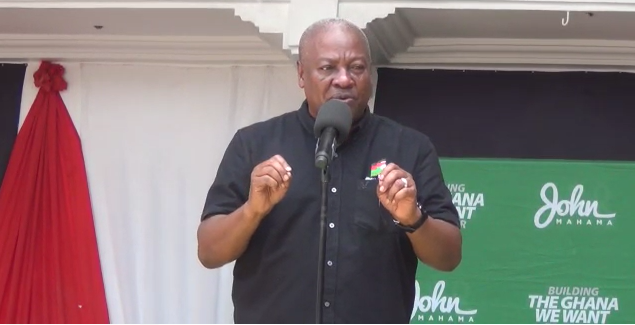President John Dramani Mahama’s directive to the Lands Commission, halting all activities related to the sale, lease, and processing of transactions involving state and public lands, marks a significant intervention in Ghana’s land management system. This decisive action, communicated through a letter from the Secretary to the President, Dr. Callistus Mahama, underscores the government’s commitment to safeguarding these vital national assets for the benefit of current and future generations. The directive mandates an immediate cessation of all ongoing and pending transactions, effectively freezing the current state of affairs to allow for a thorough review of the existing framework governing the management of state and public lands. This comprehensive review aims to identify potential vulnerabilities, loopholes, and inefficiencies in the current system and pave the way for the development of more robust and transparent mechanisms for land administration.
The directive’s emphasis on preserving state and public lands for the collective good highlights the importance of these resources for national development and the well-being of citizens. State and public lands play a crucial role in various aspects of national life, including infrastructure development, social amenities, environmental conservation, and economic activities. Their mismanagement or misappropriation can have far-reaching consequences, depriving communities of essential resources, undermining development efforts, and exacerbating social inequalities. The directive, therefore, seeks to prevent further dissipation of these valuable assets and ensure their judicious utilization for the betterment of the nation.
The Lands Commission has been tasked with submitting a detailed report within fourteen days of the directive, outlining all recent and ongoing transactions concerning state and public lands. This report will provide the government with a comprehensive overview of the current state of land transactions, enabling a more informed and targeted review of the existing land management framework. The report’s scope will likely encompass details of land allocations, lease agreements, sales transactions, and any other relevant activities involving state and public lands. This data will be crucial in identifying potential irregularities, assessing the extent of land transactions, and determining the effectiveness of existing regulatory mechanisms.
The President’s directive represents a proactive step towards strengthening land governance in Ghana. By halting all transactions and initiating a comprehensive review, the government aims to address potential weaknesses in the current system and create a more robust and accountable framework for managing state and public lands. This move aligns with the broader objective of promoting sustainable development and ensuring that national resources are utilized effectively for the benefit of all citizens. Furthermore, the directive signals a commitment to transparency and accountability in land administration, aiming to mitigate corruption and ensure that land transactions are conducted in a fair and equitable manner.
The implications of this directive are far-reaching, potentially impacting various stakeholders involved in land transactions. Developers, investors, and individuals engaged in land acquisition or development will need to adjust their plans and await the outcome of the review process. The temporary halt in transactions may create some uncertainty in the short term, but it is a necessary step towards establishing a more secure and transparent land management system in the long run. Ultimately, the directive aims to create a more level playing field for all stakeholders and foster a more responsible approach to land utilization.
The success of this initiative will depend on several factors, including the thoroughness of the Lands Commission’s report, the effectiveness of the subsequent review process, and the government’s commitment to implementing the necessary reforms. Public engagement and stakeholder consultations will also be crucial in ensuring that the revised framework addresses the concerns of all relevant parties and promotes equitable access to land resources. The directive represents a significant step towards enhancing land governance in Ghana and lays the foundation for a more sustainable and equitable approach to land management. The outcome of this process will have significant implications for the country’s development trajectory and the well-being of its citizens.














